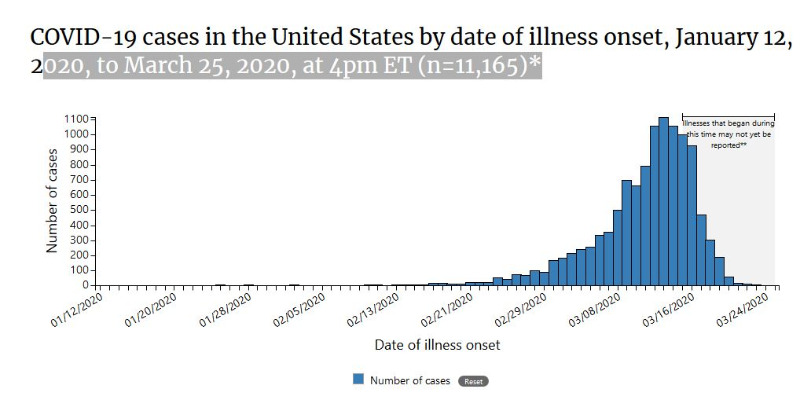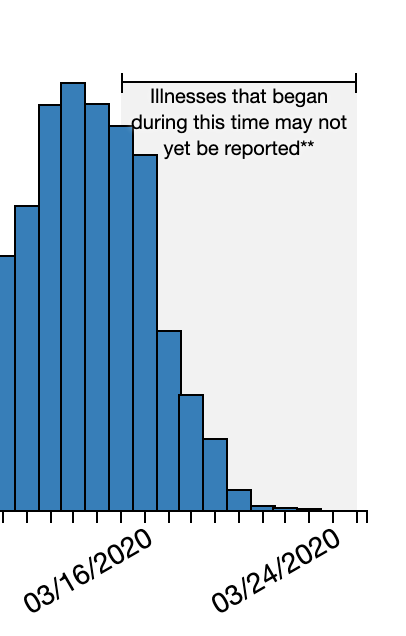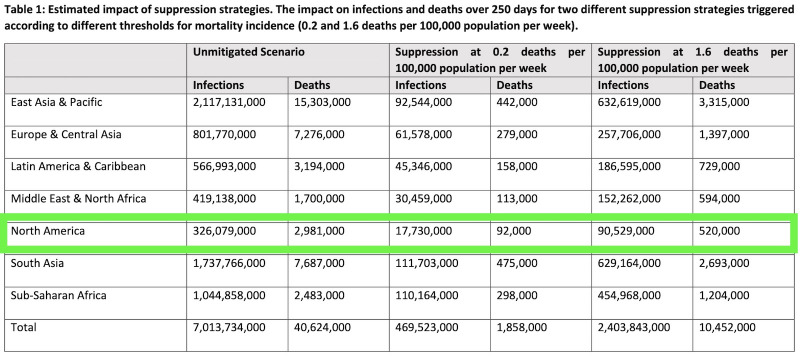- Posts: 2841
- Thank you received: 92
Wuhan Virus Update
- koobookie
-

- Mountain Legend
-

Please Log in or Create an account to join the conversation.
- ramage
-
 Topic Author
Topic Author
- Mountain Legend
-

- Posts: 4388
- Thank you received: 94
Please Log in or Create an account to join the conversation.
- Pony Soldier
-

- User is blocked
-

- Posts: 4749
- Thank you received: 43
koobookie wrote:
Pony Soldier wrote: They are not the masks they they will accept anyway. These are the 3M dust masks that are not medical approved. Not to mention they belong to the company I work for, not me.
Really? You said they were in your garage. You said they were N95 masks.I've also got enough Lysol to disinfect South Carolina, about 200 N95 masks, paper towels for days, Windex and all kinds of other crap that is taking up room in my garage now.
Whatever.
www.3m.com/3M/en_US/company-us/all-3m-pr...85+3294780149&rt=rud
Please Log in or Create an account to join the conversation.
- ramage
-
 Topic Author
Topic Author
- Mountain Legend
-

- Posts: 4388
- Thank you received: 94
There is a distinction between masks that are medical authorized and those that are industrial.
Here is a headline that should warm your heart:
Planned Parenthood Sues Texas in Order to Keep Killing Babies During Coronavirus Pandemic
pjmedia.com 3/26/20
Feel free to read the article.
Please Log in or Create an account to join the conversation.
- koobookie
-

- Mountain Legend
-

- Posts: 2841
- Thank you received: 92
Yes, but you did not make that distinction until later. Thanks.ramage wrote: Koobookie,
There is a distinction between masks that are medical authorized and those that are industrial.
Please Log in or Create an account to join the conversation.
- ramage
-
 Topic Author
Topic Author
- Mountain Legend
-

- Posts: 4388
- Thank you received: 94
Please Log in or Create an account to join the conversation.
- ScienceChic
-

- Mountain Champion
-

- Posts: 15746
- Thank you received: 320
Umm, that's not a "dramatic drop in cases" according to the fine print.Pony Soldier wrote: Today's chart showing the dramatic drop in new cases starting March 14th
www.cdc.gov/coronavirus/2019-ncov/cases-...tes/cases-in-us.html
To post a YouTube video, simply highlight, copy, and paste the url of that video. It will automatically embed as a thumbnail. Tutorial here.ramage wrote: Thank you HA. I saw the snippet but do not know how to post it. Can you instruct me?
On another note:
Ferguson warned that an uncontrolled spread of the virus could cause as many as 510,000 deaths in Britain and up to 2.2 million deaths in the U.S. According to the New York Times, “it wasn’t so much the numbers themselves [that caused policymakers to act]. . .as who reported them: Imperial College London.”
Now, Ferguson and the Imperial College London have new numbers for Great Britain. According to this report, Ferguson says the number of deaths in Britain is unlikely to exceed 20,000 and could be much lower. And according to this source, more than half of those who die from the virus would likely have died by the end of the year in any case because they were so old and sick.
The average number of deaths from the flu in Britain each year is 17,000.
Neil Ferguson of Imperial College London is an epidemiologist.
Back on topic, do you mean this Neil Ferguson, who posted this 4 hours ago:
neil_ferguson @neil_ferguson
Report 12: The Global Impact of COVID-19 and Strategies for Mitigation and Suppression1/4 - I think it would be helpful if I cleared up some confusion that has emerged in recent days. Some have interpreted my evidence to a UK parliamentary committee as indicating we have substantially revised our assessments of the potential mortality impact of COVID-19.
4:52 PM · Mar 26, 2020
2/4 -This is not the case. Indeed, if anything, our latest estimates suggest that the virus is slightly more transmissible than we previously thought. Our lethality estimates remain unchanged.
3/4 - My evidence to Parliament referred to the deaths we assess might occur in the UK in the presence of the very intensive social distancing and other public health interventions now in place.
4/4 - Without those controls, our assessment remains that the UK would see the scale of deaths reported in our study (namely, up to approximately 500 thousand).
26 March 2020 - Imperial College London
PDF of the ReportSUMMARY
The world faces a severe and acute public health emergency due to the ongoing COVID-19 global pandemic. How individual countries respond in the coming weeks will be critical in influencing the trajectory of national epidemics. Here we combine data on age-specific contact patterns and COVID-19 severity to project the health impact of the pandemic in 202 countries. We compare predicted mortality impacts in the absence of interventions or spontaneous social distancing with what might be achieved with policies aimed at mitigating or suppressing transmission. Our estimates of mortality and healthcare demand are based on data from China and high-income countries; differences in underlying health conditions and healthcare system capacity will likely result in different patterns in low income settings.
We estimate that in the absence of interventions, COVID-19 would have resulted in 7.0 billion infections and 40 million deaths globally this year. Mitigation strategies focussing on shielding the elderly (60% reduction in social contacts) and slowing but not interrupting transmission (40% reduction in social contacts for wider population) could reduce this burden by half, saving 20 million lives, but we predict that even in this scenario, health systems in all countries will be quickly overwhelmed. This effect is likely to be most severe in lower income settings where capacity is lowest: our mitigated scenarios lead to peak demand for critical care beds in a typical low-income setting outstripping supply by a factor of 25, in contrast to a typical high-income setting where this factor is 7. As a result, we anticipate that the true burden in low income settings pursuing mitigation strategies could be substantially higher than reflected in these estimates.
Our analysis therefore suggests that healthcare demand can only be kept within manageable levels through the rapid adoption of public health measures (including testing and isolation of cases and wider social distancing measures) to suppress transmission, similar to those being adopted in many countries at the current time. If a suppression strategy is implemented early (at 0.2 deaths per 100,000 population per week) and sustained, then 38.7 million lives could be saved whilst if it is initiated when death numbers are higher (1.6 deaths per 100,000 population per week) then 30.7 million lives could be saved. Delays in implementing strategies to suppress transmission will lead to worse outcomes and fewer lives saved.
We do not consider the wider social and economic costs of suppression, which will be high and may be disproportionately so in lower income settings. Moreover, suppression strategies will need to be maintained in some manner until vaccines or effective treatments become available to avoid the risk of later epidemics. Our analysis highlights the challenging decisions faced by all governments in the coming weeks and months, but demonstrates the extent to which rapid, decisive and collective action now could save millions of lives.
We open back up at Easter, we won't reach the 0.2 deaths per 100,000 scenario.
"Now, more than ever, the illusions of division threaten our very existence. We all know the truth: more connects us than separates us. But in times of crisis the wise build bridges, while the foolish build barriers. We must find a way to look after one another as if we were one single tribe.” -King T'Challa, Black Panther
The truth is incontrovertible. Malice may attack it. ignorance may deride it, but in the end, there it is. ~Winston Churchill
Please Log in or Create an account to join the conversation.
- Pony Soldier
-

- User is blocked
-

- Posts: 4749
- Thank you received: 43
Please Log in or Create an account to join the conversation.
- homeagain
-

- Mountain Legend
-

- Posts: 12736
- Thank you received: 173
homeagain wrote:
ramage wrote: Windex, my most fond memory of "My Big Fat Greek Wedding". Now that you "triggered" (can I, use that word, never mind I just did) my memory, I am going to search for the movie and watch it again if it is available.
Sorry. I did not get back to U....Just saw the post.....THIS movie was really accurate, so says
a friend of mine.who grew up in the Denver area by the Greek Orthodox Church.....FORGOT
how funny this was....thanks for reminding me.
Please Log in or Create an account to join the conversation.
- homeagain
-

- Mountain Legend
-

- Posts: 12736
- Thank you received: 173
ramage wrote: This informative article is especially apt for the MMT community.
Six Best Toilet Paper Substitutes from
Nature
Can’t find any bathroom tissue thanks to coronavirus hoarders? Don’t worry, the outdoors has your backside.
From fieldandstream.com 3/20/2020
Unfortunately, I am not in the mountains(San Juans range is my panoramic view tho).....I do know
that the soft,fuzzy grayish LAMPS EAR plant is a good substitute...it actually has the shape of a
lamps ear...... just for further knowledge.....
Please Log in or Create an account to join the conversation.










